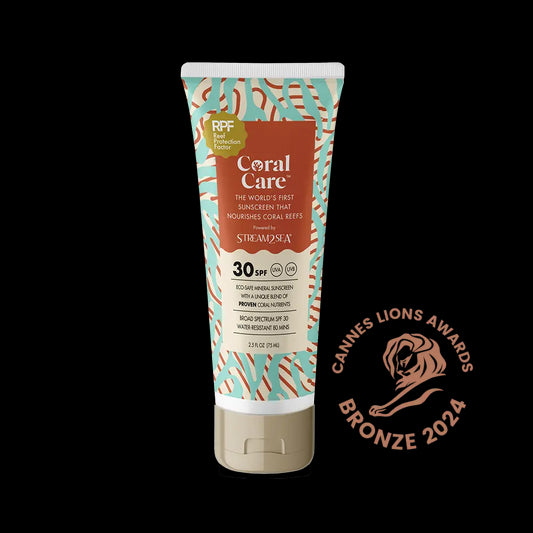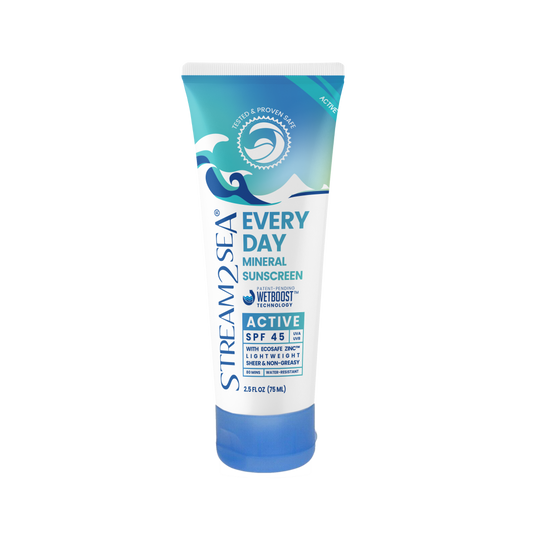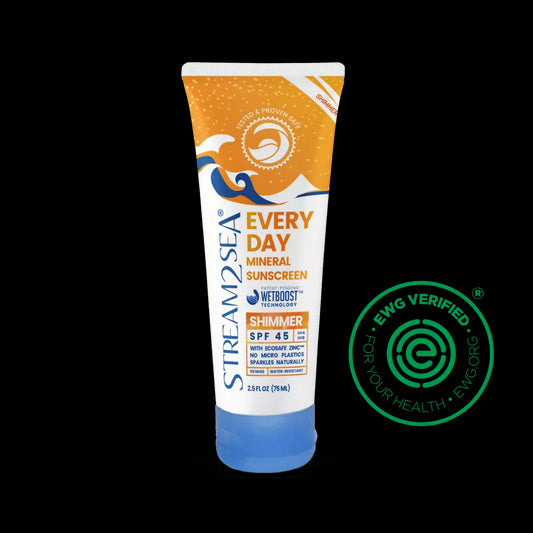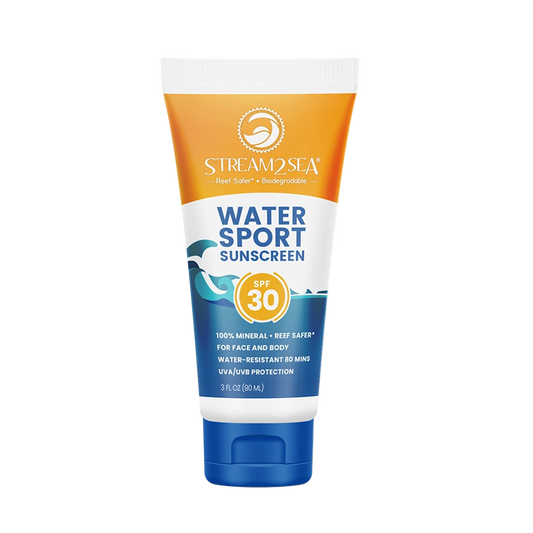Share
One of the most frustrating things about manufacturing reef-safer sunscreen is the incredible number of companies that use that term as a marketing tool, not a promise to their customers. Ever since Dr. Craig Downs’ 2015 report showing that sunscreens were deadly to coral reefs in minute concentrations, manufacturers have climbed on the reef-safer bandwagon - even when their products are toxic in marine ecosystems.
That’s one reason we jump at the chance to test and verify our products. We were the first – in 2014 – and still the only sunscreen manufacturer to have tested our products to ensure they are truly safer for fish and coral larvae. We were among the first companies to earn the Protect Land + Sea Certification from the Haeretics Environmental Laboratory that Dr. Downs directs. And, this month, we became one of the first companies to earn the EWG Verified label for sunscreens from the Environmental Working Group.
It’s not just that we like all those stickers on our labels, it’s that we strongly believe that third-party verification shows our customers that we mean what we say. It shows that we’re truly committed to formulating and marketing products that are safer for our customers and our blue planet – and sometimes they’re not the same! And it shows that we’re not afraid to have our products compared to the latest science by experts in their fields.

The EWG Verified is especially close to my heart though. We’ve been working for years to get on their “good guy” list and never quite made it (we still don’t understand why because we rank well on their Skin Deep database). This new verification, though, goes far deeper than their standard product review. They started with the basics – ingredient listings, safety data sheets, third-party SPF test results, and certificates of analysis.
Then they went even further, asking for reports like critical wavelength test results that look at how effectively our sunscreens block UVA rays. That’s one of the most important things to an average consumer even if they don’t understand it because it’s the UVA rays that cause premature aging and are linked most closely to skin cancer. (The SPF on the front of a sunscreen label just measures how it protects against the UVB rays that cause sunburn.)
And one step beyond that – they wanted verification that the botanical ingredients in our formulas are both sustainable and not contaminated. We ran more independent tests to show that our wakame seaweed wasn’t contaminated with heavy metals or radiation.

EWG, of course, is somewhat concerned with coral reefs but mostly they focus on protecting consumers from harmful products, whether they’re carrots, tap water (or expensive filters that don’t work), or chemicals in playgrounds and cleaning products. Sunscreens, however, have become an area of focus for them because so many major manufacturers are using ingredients that many experts think should be totally banned.
As most Stream2Sea customers probably know, the FDA downgraded every sunscreen ingredient except zinc and titanium dioxide and revoked the GRASE – Generally Recognized As Safer and Effective – status for all petrochemical sunscreen ingredients in 2019. The FDA noted that they all are absorbed into skin at much higher levels than the recommended thresholds, and asked for safety data (which they still haven’t received).
Some studies already have linked those petrochemical sunscreen ingredients to hormone and endocrine disruption, lowering testosterone in males and potentially causing infertility, as well as possibly increasing the risk of breast cancer and endometriosis. Researchers have shown that adolescents with higher levels of oxybenzone in their bloodstream are more likely to have altered testosterone levels, but manufacturers argue that the data does not show a causal connection.
In either case, consumers are catching on. EWG says that 60% of sunscreens sold in 2019 were made with oxybenzone; this year only 13% had what many experts say is the most worrisome ingredient. A major manufacturer has announced that it will stop making another petrochemical, octocrylene, after listening to consumer concerns. (Of course, there are still other manufacturers out there, but it’s a big step forward.)
And from a safety perspective, it’s not just sunscreen ingredients consumers should care about. Parabens, phthalates, harsh fragrances, and preservatives are all still found in sunscreens and bodycare products even though their safety has been questioned too. In the best of all possible worlds, we wouldn’t need to read the fine print on the labels of every product we put on our bodies, but in the meantime, ask for a copy of our “Ingredients to Avoid” card with your next order or download a copy that you can print to take with you when you’re shopping.
You can also check for the EWG VERIFIED label on products ranging from baby products to aluminum-free antiperspirants. It makes it easier to trust that they’re made with safer, sustainable ingredients.

The final organic product you use is only a small part of the story. The journey includes the growing, processing, and extraction of natural materials, manufacturing, distribution, and transportation to stores and consumers. Each layer has the potential to immensely impact our communities and our planet – both positively and negatively. To produce a better, more sustainable product, we must consider each step and its impact. We love that EWG adds this extra layer to their verified program to look at the bigger picture. Together we are doing better!
![[S2S] After-sun Care](http://stream2sea.com/cdn/shop/collections/SPF30_and_Sun_Sting_Gel.jpg?v=1764789810&width=1500)




